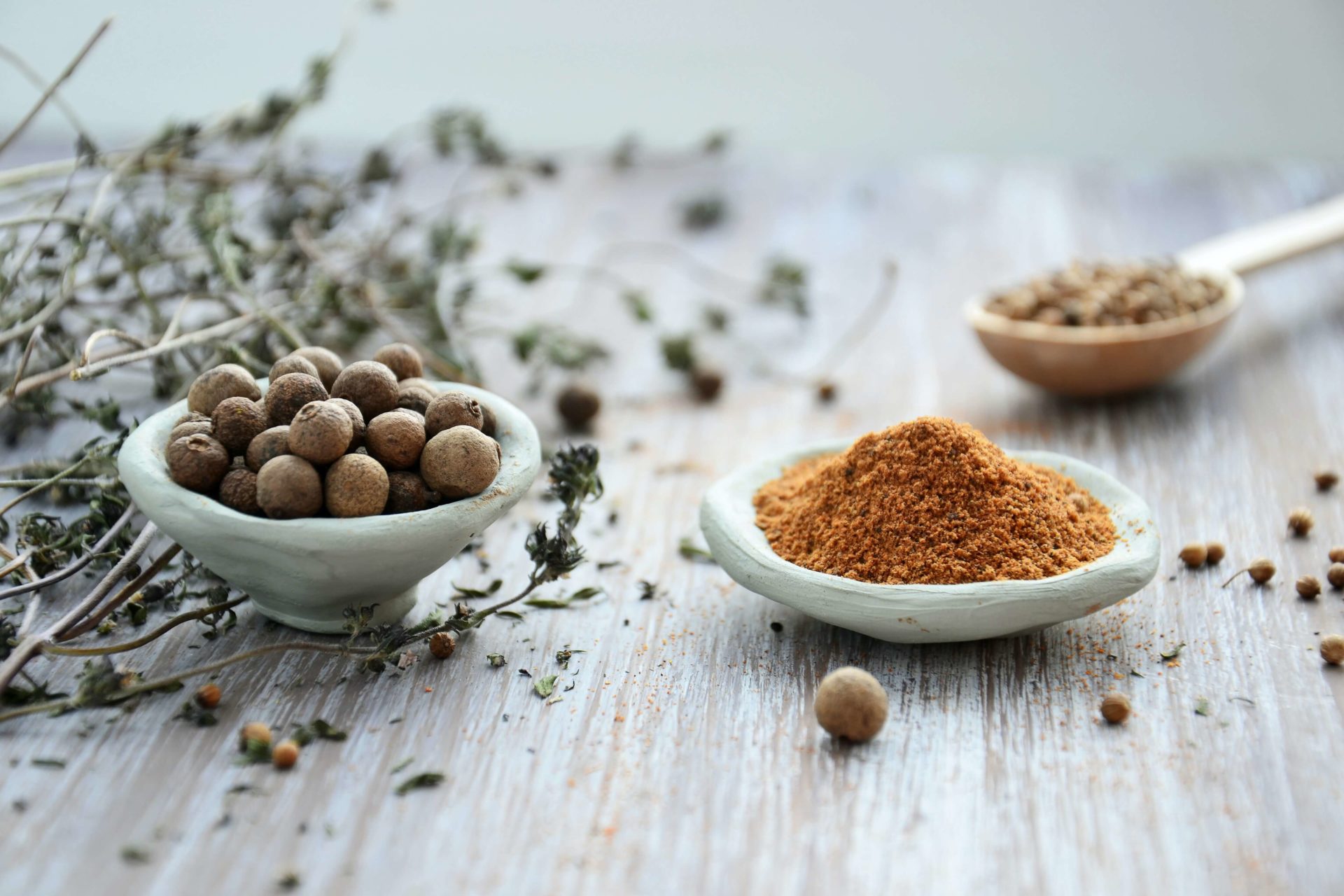
Herb Spotlight: Ashwagandha—an ancient adaptogen for modern life
By Andrea Vannelli
Ashwagandha is the common name for Withania somnifera, a plant root appreciated by numerous cultures around the globe. Most notably it’s been used for many centuries in traditional Ayurvedic medicine, with therapeutic use dating as far back as 3000 years according to some ancient texts. Ayurveda considers ashwagandha as a rasayana, or life extender that bolsters general health and well-being.
Modern research of ashwagandha use is unfolding at a rapid pace. It so far validates this ancient knowledge and has demonstrated ashwagandha to be non-toxic and clinically effective for human health and wellness. Today we categorize ashwagandha as an adaptogen, which are herbal products that are known to promote adaptability, resilience, and survival in the face of stress. In particular, ashwagandha has both a calming and energizing effect on the nervous system, providing sustenance that helps the body to conserve energy.
Ashwagandha is a true benefit to counteract everyday stress-induced symptoms including exhaustion, difficulty to concentrate, sleeplessness, anxiety, irritability and depression. With regular use it can improve cognitive functions and endurance; boost immune response; enhance attention, memory and focus; nourish the reproductive system; and improve physical performance and recovery time.
Mental benefits
The name somnifera means sleep-inducing, referring to ashwagandha’s historical use as a calming herb. Research shows it significantly improves sleep efficiency and quality. Possibly a side benefit of better sleep, ashwagandha has been shown to improve memory and cognitive function in adults, including immediate general memory, executive function, sustained attention and information-processing speed. Ashwagandha is also helpful for rooting mental performance and calming anxiety. At the conclusion of one eight-week study of regular use, adults scored a 44% reduction in perceived stress, as well as a nearly 28% reduction in serum cortisol levels. This group also rated significant overall mood improvements, including reduction in depression.
Physiological support
A 2020 study using salivary biomarkers demonstrated that ashwagandha extended the adaptive range of the subjects’ homeostatic state, effectively doubling it in both the negative and positive realm. This basically translates to a significant increase in bandwidth for stress response and recovery capacity. In the case of everyday stressors, it’s not the stressors themselves that wear us down over time—rather it’s the way we perceive and respond to those influences. By improving one’s capacity for handling stress, ashwagandha can help us be more present for the day’s experiences, rather than simply reactive.
In the realm of physical performance, research suggests supplementation with ashwagandha enhances physical endurance and oxygen consumption in athletic and non-athletic people. Studies demonstrate that ashwagandha use increases endurance, muscle size and muscle recovery. In another trial, after eight weeks of regular use, adults showed significant reductions in food cravings and body weight.
Ashwagandha also supports thyroid hormones in people with low gland function. It has been shown to improve TSH in patients with subclinical hypothyroidism, as well as significantly boost T4, which is the inactive form produced by the thyroid gland. (This is then converted to the active form, T3, in the liver on an as-needed basis.) This is likely one of the means by which ashwagandha helps to support stable energy levels. It also boosts immunity by preventing overreaction and countering immune depletion in stressed individuals.
Reproductive boost
Ashwagandha is a potent antioxidant that has been shown to enhance male fertility by improving sperm count and motility. It also shows evidence of regulating reproductive hormone levels which may increase testosterone. In one trial with women, ashwagandha demonstrated significant sexual function enhancement via improvements in desire, arousal, lubrication, orgasm, satisfaction and pain. For menopausal women, ashwagandha can increase libido as well as reduce symptoms including hot flashes, insomnia and mood swings.
Overall, ashwagandha gives strength and stamina in a manner that is also very calming, promoting a balanced response to stress. With such a broad range of benefits, it’s easy to see why this herb’s popularity has stood the test of time! Note that it does take time to see the full effects of this herb—research trials suggest eight weeks. A common, clinically-effective dosage is 300mg, twice per day. Results may vary per individual. As always, when it comes to supplementing with herbal medicine, sourcing and quality are fundamental. Be sure to use clean, responsibly sourced products that are processed and standardized to provide optimal efficacy.
Ashwagandha is generally considered safe however it may not be appropriate for everyone. Please exercise discretion if you are pregnant or lactating, take thyroid medication, have hormone-sensitive prostate cancer, or are on blood pressure medication. If you are interested in trying ashwagandha or are wondering whether it would be right for you, reach out to us at Naturna for more info and guidance.
Resources
Choudhary, D., Bhattacharyya, S., & Joshi, K. (2017). Body Weight Management in Adults Under Chronic Stress Through Treatment With Ashwagandha Root Extract: A Double-Blind, Randomized, Placebo-Controlled Trial. Journal of evidence-based complementary & alternative medicine, 22(1), 96–106. https://doi.org/10.1177/2156587216641830
Dongre, S., Langade, D., & Bhattacharyya, S. (2015). Efficacy and Safety of Ashwagandha (Withania somnifera) Root Extract in Improving Sexual Function in Women: A Pilot Study. BioMed research international, 2015, 284154. https://doi.org/10.1155/2015/284154
Langade, D., Thakare, V., Kanchi, S., & Kelgane, S. (2021). Clinical evaluation of the pharmacological impact of ashwagandha root extract on sleep in healthy volunteers and insomnia patients: A double-blind, randomized, parallel-group, placebo-controlled study. Journal of ethnopharmacology, 264, 113276. https://doi.org/10.1016/j.jep.2020.113276
Mukherjee, P. K., Banerjee, S., Biswas, S., Das, B., Kar, A., & Katiyar, C. K. (2021). Withania somnifera (L.) Dunal – Modern perspectives of an ancient Rasayana from Ayurveda. Journal of ethnopharmacology, 264, 113157. https://doi.org/10.1016/j.jep.2020.113157
Panossian, A. G., Efferth, T., Shikov, A. N., Pozharitskaya, O. N., Kuchta, K., Mukherjee, P. K., Banerjee, S., Heinrich, M., Wu, W., Guo, D. A., & Wagner, H. (2021). Evolution of the adaptogenic concept from traditional use to medical systems: Pharmacology of stress- and aging-related diseases. Medicinal research reviews, 41(1), 630–703. https://doi.org/10.1002/med.21743
Pérez-Gómez, J., Villafaina, S., Adsuar, J. C., Merellano-Navarro, E., & Collado-Mateo, D. (2020). Effects of Ashwagandha (Withania somnifera) on VO2max: A Systematic Review and Meta-Analysis. Nutrients, 12(4), 1119. https://doi.org/10.3390/nu12041119
Salve, J., Pate, S., Debnath, K., & Langade, D. (2019). Adaptogenic and Anxiolytic Effects of Ashwagandha Root Extract in Healthy Adults: A Double-blind, Randomized, Placebo-controlled Clinical Study. Cureus, 11(12), e6466. https://doi.org/10.7759/cureus.6466
Sengupta, P., Agarwal, A., Pogrebetskaya, M., Roychoudhury, S., Durairajanayagam, D., & Henkel, R. (2018). Role of Withania somnifera (Ashwagandha) in the management of male infertility. Reproductive biomedicine online, 36(3), 311–326. https://doi.org/10.1016/j.rbmo.2017.11.007


